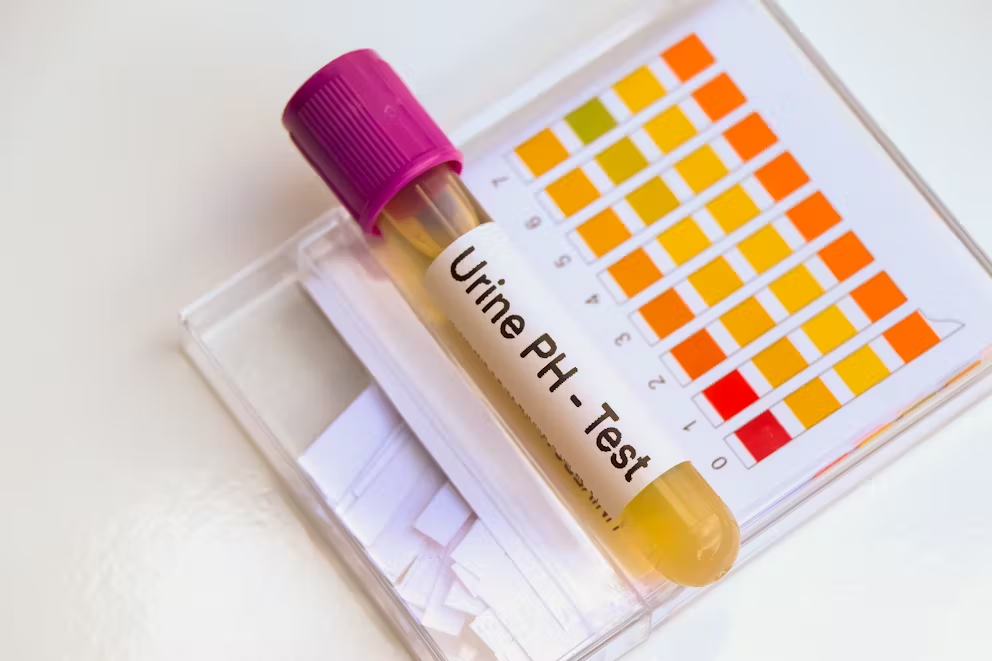Understanding Urine pH in Kidney Disease: A Closer Look at ADPKD

The role of urine pH in monitoring and managing kidney health is crucial, especially in conditions like autosomal dominant polycystic kidney disease (ADPKD). This blog delves deeper into how urine pH affects kidney function, the specific challenges faced by individuals with ADPKD, and how adjusting urine pH can help manage the disease more effectively.
What is Urine pH?
Urine pH measures the acidity or alkalinity of urine, indicating the kidneys' ability to maintain a balanced internal environment. Normal urine pH ranges from 4.5 to 8.0, but various factors, including diet, medication, and diseases like ADPKD, can affect this balance.
The Link Between Urine pH and ADPKD
ADPKD often leads to chronically acidic urine pH and hypocitraturia (low urinary citrate levels), which are signs of metabolic acidosis—a common complication in ADPKD patients. Metabolic acidosis can exacerbate kidney damage by facilitating the formation of uric acid and calcium-based kidney stones, which are significantly more common in individuals with ADPKD compared to the general population.
Impact of Low Urine pH and Hypocitraturia
Formation of Kidney Stones: Acidic urine is a fertile environment for the formation of uric acid stones. Similarly, hypocitraturia can lead to calcium oxalate and calcium phosphate stones, which are detrimental in ADPKD as they can accelerate disease progression.
Renal Crystal Formation: Acidic urine and low citrate levels can contribute to the formation of insoluble microcrystals like calcium oxalate and calcium phosphate in the kidney tubules. These crystals can trigger the formation of renal cysts, leading to accelerated disease progression.
Nutritional Interventions: The Role of Citrate in Urine pH
Supplementation with products containing citrate, such KetoCitra®, can significantly improve urine pH and urinary citrate concentrations.
Citrate helps:
- Normalize urine pH.
- Increase urinary citrate levels, countering the formation of both uric acid and calcium-based kidney stones.
- Inhibit the formation of struvite and other crystals, providing a protective effect against further kidney damage.
Monitoring and Managing Urine pH in ADPKD
For ADPKD patients, regular monitoring of urine pH is crucial
Diet and Lifestyle Changes: Adjustments in diet, such as reducing the intake of acidifying foods (e.g., grains and certain proteins), can help maintain a healthier urine pH level.
Use of Alkalizers: Alongside dietary management, the use of alkalizers like sodium bicarbonate or KetoCitra® can help. However, care must be taken to avoid over-alkalinization, which can lead to other complications such as the precipitation of calcium phosphate.
Practical Steps for Self-Monitoring of Urine pH
Patients can monitor their urine pH using pH indicator paper at home, following these steps:
- Collect urine in a cup.
- Dip the pH paper strip into the urine.
- Immediately compare the color change to a color chart to determine the pH.
- Keep a record of the pH readings to discuss with healthcare providers, allowing for timely adjustments in treatment plans.
KetoCitra® And Urine Ph
By Preventing The Formation Of Micro-Crystals And Kidney Stones, KetoCitra® Mayhelp In Slowing Down The Progression Of Kidney Disease.
- Urinary Balance: KetoCitra® contains citrate, which aids in normalizing urinary citrate levels, a common imbalance found in individuals with kidney disease.
- Prevention of Micro-Crystals: By correcting low urinary citrate levels (hypocitraturia), KetoCitra® reduces the risk of micro-crystal formation which can lead to kidney damage and cyst development.
- Reduced Risk of Stones: Normalizing urine citrate levels with KetoCitra® decreases the chances of developing kidney stones, a common complication for those with kidney disease.
- Inhibition of Disease Progression: By preventing the formation of micro-crystals and kidney stones, KetoCitra® may help in slowing down the progression of kidney disease.
Conclusion
Understanding and managing urine pH is a vital aspect of controlling ADPKD progression. Through regular monitoring and strategic use of dietary management and supplements like alkaline citrate, patients can significantly mitigate the risk factors associated with low urine pH and hypocitraturia. As always, these interventions should be discussed and managed under the guidance of healthcare professionals to tailor the approach to each individual's needs and conditions.

コメントを残す: